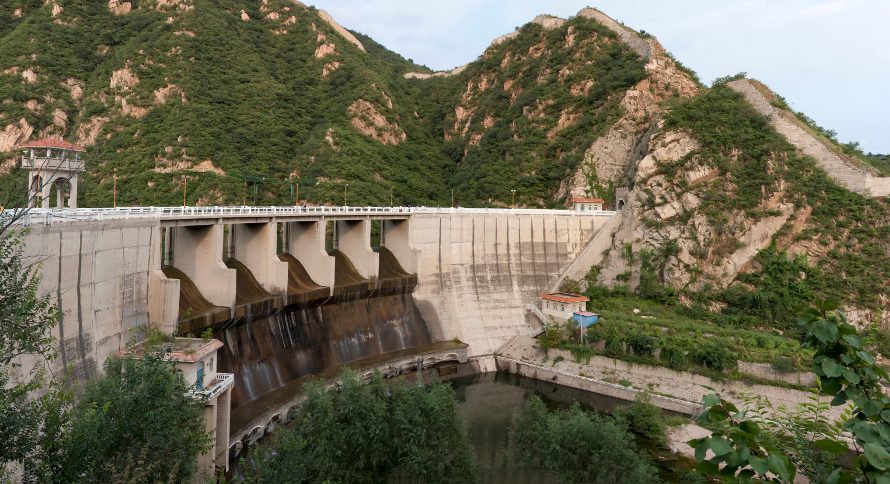Water politics in Burma: New government faces conundrum in China’s stalled mega-dam
Four months after Aung San Suu Kyi’s democratically elected government assumed office, the fate of the controversial Myitsone project hangs in the balance.
By Kyungmee Kim, PhD Candidate, Uppsala University
After winning last year’s historic election, Aung San Suu Kyi’s National League for Democracy (NLD) took office in late March and quickly faced the pressing question of whether or not to cancel or resume China’s suspended Myitsone Dam – one of the world’s most contentious hydropower projects.
Chinese state-owned enterprise State Power Investment Corporation (formerly China Power Investment Corporation), claimed it had already spent about US$800 million of the project’s $3.6 billion budget by the time of the dam’s suspension in 2011. The decision made by the previous government of President Thein Sein caused a diplomatic chill between Burma and China.
The surprising decision has not only had repercussions for the countries’ bilateral relationship, but could also affect China’s overseas investment policy. The dam’s suspension marked the first time that Beijing misread the political risks in an investment-receiving country and that political changes seriously affected its investment.
Impact on China’s overseas investment policy
Most Chinese state-owned enterprises are financed by loans granted or provided by state banks. These financiers of overseas hydropower projects now consider the risks regarding potential social and environmental impact on the local population. New sets of guidelines issued by Ministry of Commerce of China recommend these matters are included in investment planning.
Since taking office, the NLD-led government, de facto led by State Counsellor Aung San Suu Kyi, has deferred a decision on the controversial project.
In August, President Htin Kyaw formed a 20-member committee, comprising mostly lawmakers, to probe the hydropower projects on the upper Irrawaddy River, most importantly the Myitsone Dam, but also another six dams located on the upper Irrawaddy River. The combined Chinese investment in the projects reportedly has a total investment value of $8 billion.
Democratic transition and foreign direct investments
Democratic transition in Burma is historic and imperative for the Burmese people, as well as for other countries in the region. Many hope the NLD government can bring development, peace and prosperity to a country that was isolated during decades of military rule. Poor infrastructure and a lack of energy supply is one of the major challenges for the new government as it seeks to expand its economy and to attract foreign investment. Only 33 per cent of the Burmese population are connected to the public power grid, according to the World Bank, but rolling blackouts during dry season are a serious problem for industries and households.
The new government has yet to announce a detailed economic policy. Since her inauguration as State Counsellor, Aung San Suu Kyi has been frequently asked about the Myitsone project. So far, she has only promised to review and assess the contracts of the project. Any decision on the Myitsone Dam can have major repercussions in Burma’s domestic and international politics. China still remains the largest source of foreign direct investment in the country, and Chinese investors’ confidence may drop if the dam is definitely cancelled.
Water and internal politics
The Burmese people have overwhelmingly voted in support of Aung San Suu Kyi and many want her to now declare the cancelation of the unpopular Myitsone Dam. The democracy icon’s recent visit to China was closely watched at home and many expressed their concern over a resumption of the Myitsone project. The Burmese public expects the NLD to retain its longstanding opposition to the dam. On the other hand, the new government is under tremendous pressure to kickstart the economy, attract investment, and to bring peace and security to the country after decades of civil war.
The Myitsone Dam is a political problem that involves multiple levels of stakeholders within Burma. Not only is it unpopular with the public in central Burma, but the ethnic Kachin people who have been directly affected by the dam have strongly opposed it for almost a decade. A Kachin rebel group, the Kachin Independence Organisation, has expressed its opposition against the mega project. The future of the Myitsone Dam may thus also affect ceasefire negotiations between the rebels and the government, raising the stakes over a project decision even higher.
The Myitsone Dam is a prime illustration of water’s influence on, or by, politics. International investments have been one of the most important financial drivers in water infrastructure in developing countries. The decision on the Myitsone Dam will set the precedent of internal politics overthrowing a mega-scale investment deal. If the government decides to resume the project, it will have a huge impact on the internal politics in Burma – especially support to the new government.








